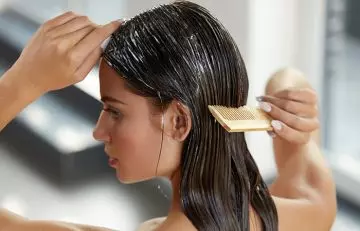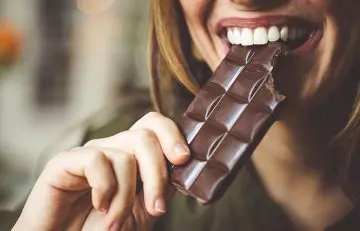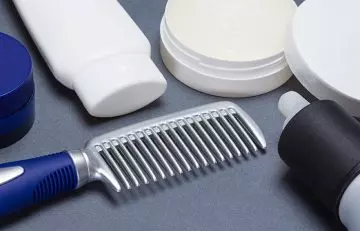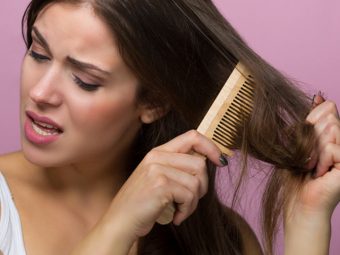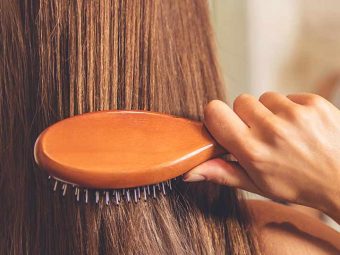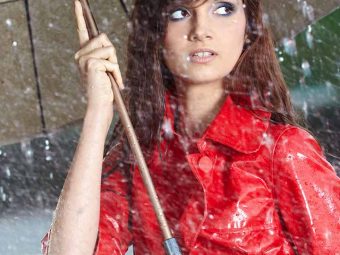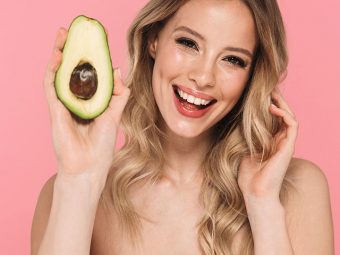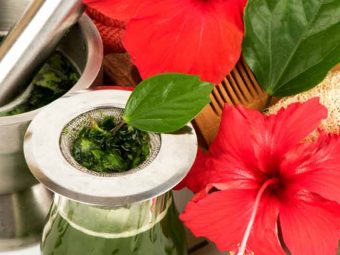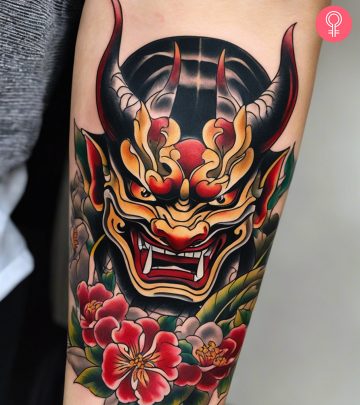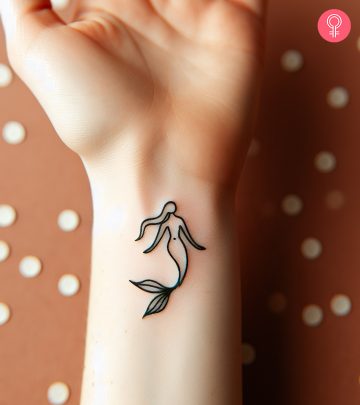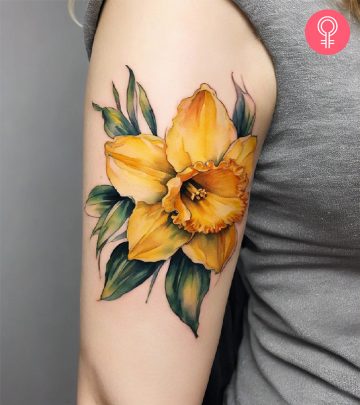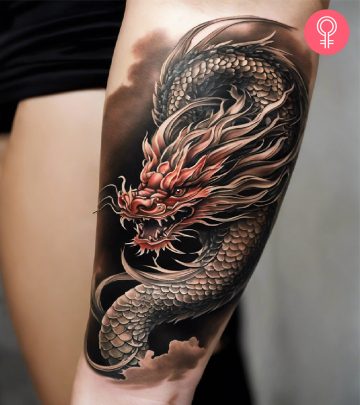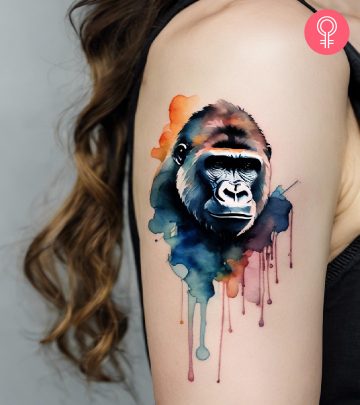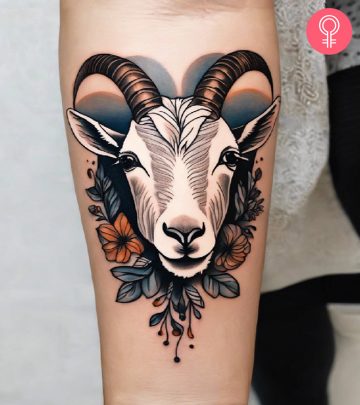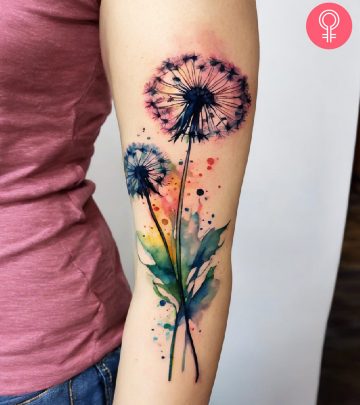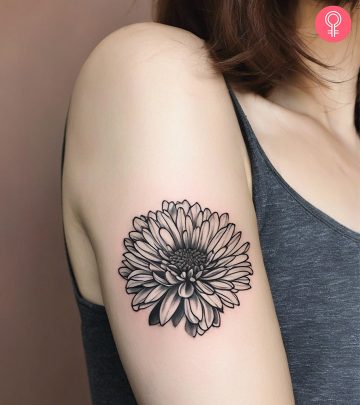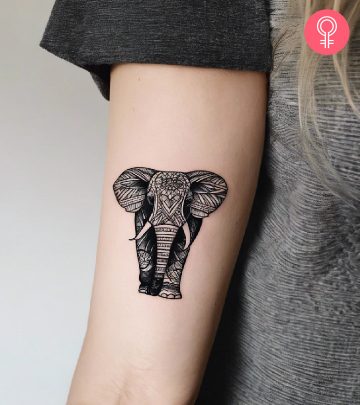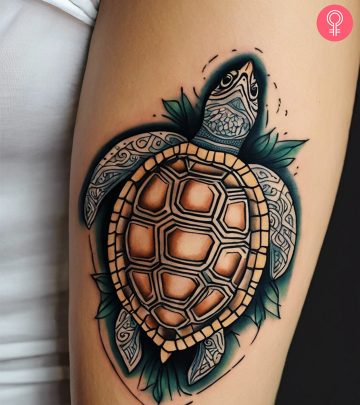10 Easy Ways To Deal With Hair Fall During The Monsoon Season

Image: iStock
The monsoon season is that beautiful time every year when the world looks green and fresh. The air around you is chilly, and you can cuddle up near the window with your favorite book in tow. Unfortunately, it’s not all fun and games, and you may find yourself dealing with a whole roster of new problems — especially the hair fall kind. Yes, you can sometimes face hair fall when the temperatures start to drop. Add lack of a sufficient amount of sunlight into the mix and you might find yourself stuck with hair fall.
The monsoons also become a season that hosts all kinds of bacteria and funguses. And whether you’d like to accept it or not, this has a significant impact on both your hair growth as well as the health of your scalp. Keeping all these issues in mind, here are ten tips on how to deal with hair fall during the monsoon season:
1. Keep Your Hair Clean
You must wash your hair with a good shampoo that will keep your dandruff in check. Look for a solid anti-dandruff shampoo that contains active zinc pyrithione. You can also make use of a good antibacterial shampoo once in a while.
2. Snack On Some Seeds And Nuts
Sometimes a healthy diet is what makes all the difference to your hair problems. Eating chia seeds, flax seeds, sesame seeds, and pumpkin seeds would provide you with an excellent dose of essential fatty acids, minerals, and omega 3. You can even have them in the form of desserts and smoothies if the idea of eating plain seeds is unappealing. You should also consider eating walnuts and almonds as they too contain plenty of essential nutrients that aid in hair growth and improve the quality of your hair.
3. Try Switching To Coconut Or Hibiscus Oil
Yes, your granny’s advice of oiling your hair with coconut oil to make it thick and healthy was absolutely right! Pre-conditioning your hair with organic coconut oil is a great way to help heal it internally and give it the nourishment it needs. If you don’t enjoy the smell of coconut oil, you can also consider trying hibiscus oil. However, it is on the pricier end of the two.
4. Make Sample Use Of Conditioner
Another common thing that most people deal with during the monsoon season is frizzy hair. To combat this, it’s a good idea to deep condition your hair as this adds a protective layer and helps your hair “settle down” a little bit. This will also lower your hair’s risk of facing damage due to exposure to rainwater. Also, make use of serum if you are considering straightening or curling your hair.
5. Eat Some Chocolate
Yes, grabbing that bar of dark chocolate is a good idea in this scenario! One of the most essential nutrients needed for healthy hair is iron. So it’s vital that you eat foods that are rich in iron like cocoa, unprocessed cocoa powder, and dark chocolate. They are a rich source of magnesium, zinc, and iron-manganese.
6. Keep Your Hair Dry
As appealing as it is to let your hair air dry rather than blow dry it, if you are in a rush to leave your home, make sure that your hair is bone dry. It’s not a good idea to walk around with wet hair during the monsoon season. This is because excess moisture can make your already vulnerable hair more conducive to bacteria, fungi, and even lice. It’s also crucial that you don’t tie your hair in a tight bun when it is wet.
7. Make Use Of A Wide Toothed Comb
Water can make your hair follicles relatively weak, so it’s a good idea to avoid brushing your hair while it is wet. If you are in a hurry and need to brush your hair, consider using a wide-toothed comb. Wide-toothed combs are gentler on your hair than fine-toothed ones and hairbrushes.
8. Follow A Balanced Diet
Of course, this goes without saying. Following a healthy diet is essential to achieve healthy hair. You need to make sure that you get a regular dose of fatty fish, beans, spinach, eggs, and lean meat. Protein, iron, and plenty of other nutrients are extremely important for good hair health.
9. Avoid Using Heavy Styling Creams Or Products
As tempting as it may be to gel up your hair like Kim Kardashian, you must skip the styling mousse, hair spray, and gels and try going au natural. These can lie heavy on your hair and make it prone to breakage and other forms of damage. This is also the perfect time to experiment with short hair as it will be the easiest to manage.
10. Try Finding A Way To Relax
It may be a bitter pill to follow, but stress is also a factor that leads to hair fall during the monsoon season. Many of us have had to face new challenges in the past two years due to the pandemic. This can lead to us having high levels of stress. However, there are plenty of healthy ways to cope with this and learn to relax better. Do consider meditating, practicing a hobby, or simply taking out some time to provide yourself with some much-needed self-care.
With the proper precautions and care, you will sail through the monsoon season with the least amount of hair fall. It’s also essential to keep yourself physically fit and active. Do let us know if any of these tips were of help to you in the comment section below!





